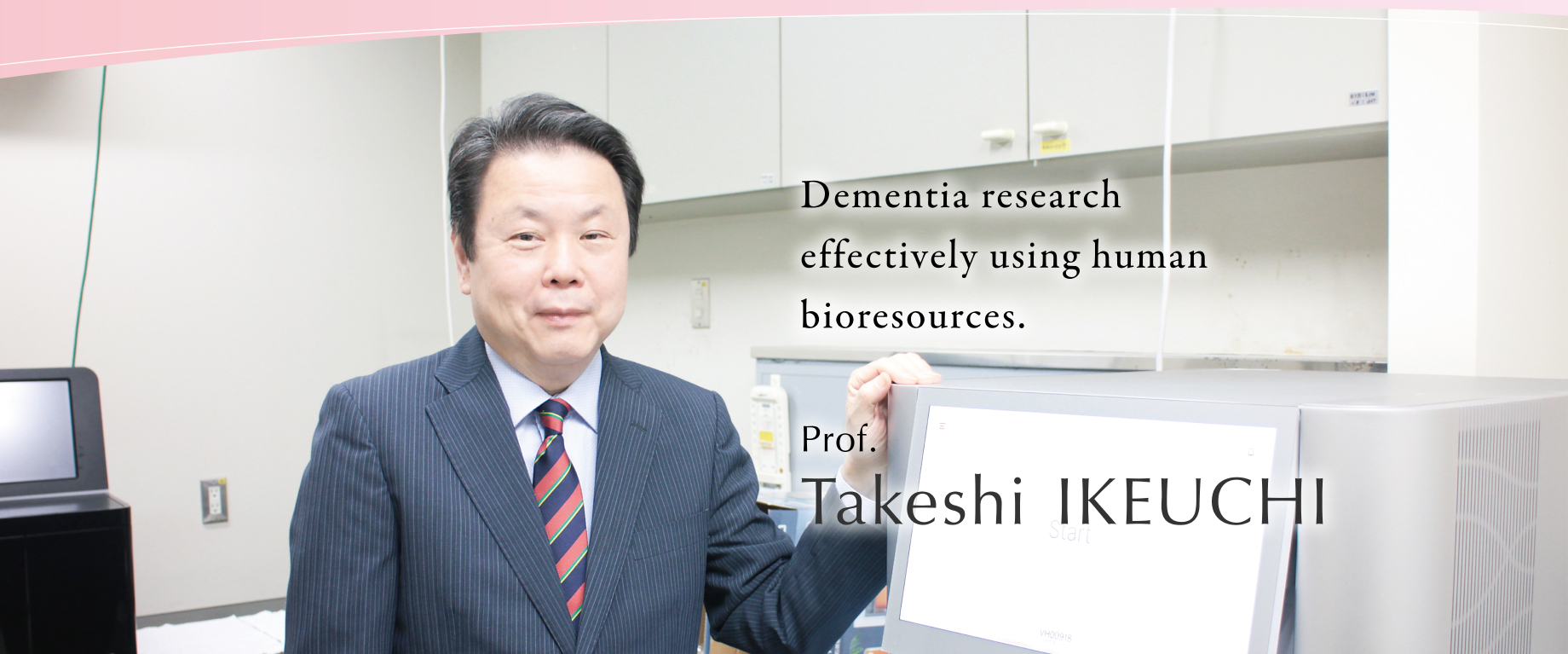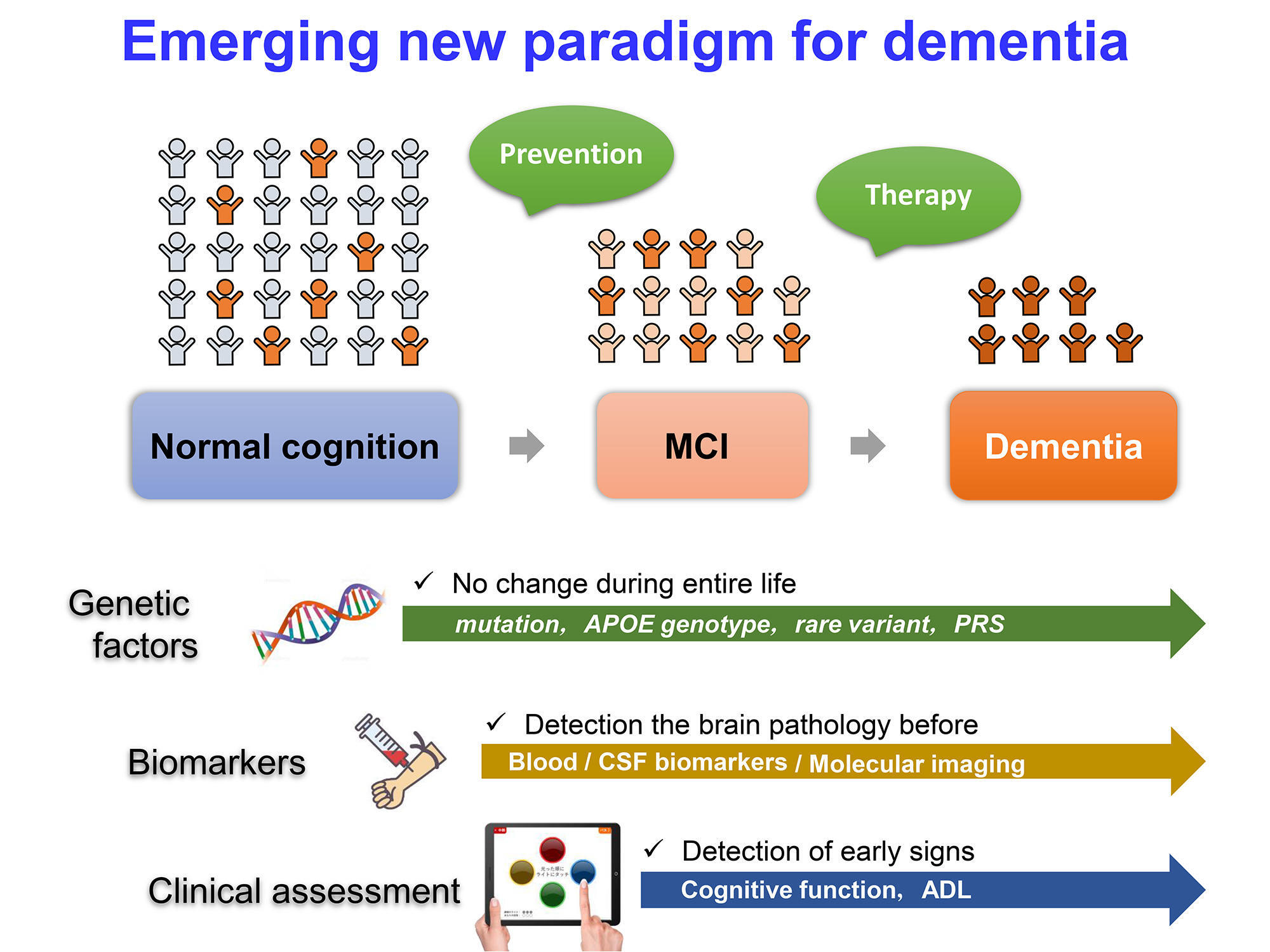
Members
Takeshi IKEUCHI
Akinori MIYASHITA
Norikazu HARA
Masataka KIKUCHI
Research Focus
New anti-amyloid-β antibody drugs, Lecanemab and Donanemab have been clinically implemented in Japan, and the therapeutics of dementia has entered a new stage. Although clinical diagnosis of dementia was made on the basis of clinical symptoms and morphological imaging, biomarkers that reflect brain pathology have become more important in the diagnostic process of dementia. Disease-modifying therapy that act directly on the pathological proteins has become the focus of therapeutic development for dementia. To lead this paradigm shift, our laboratory has been engaged in research and development for better clinical practice in dementia. Using blood and CSF samples collected through various dementia cohort studies, we have developed biomarkers to reveal the progression of brain pathology from preclinical to early symptomatic stages. We showed that the measurement of amyloid-β and phosphorylated tau, which biologically define Alzheimer's disease (AD), significantly improved the accuracy of clinical diagnosis of AD. Blood-based biomarkers are expected to play an important role in the diagnosis of dementia in near future. We have conducted joint research to develop efficient blood-based biomarkers by collaborations with industries that possess cutting-edge technologies. We believe that it is important to understand dementia based on genomic information. We have established one of the largest dementia genome cohorts in Japan. We are conducting whole genome/exome analysis using next-generation sequencer to find genetic risks unique to the Japanese population. We showed that the polygenic risk score has been successfully adapted to Japanese AD patients to predict the inborn risk of developing AD. We are also making an effort to promote the implementation of clinical sequencing and APOE testing to realize genomic medicine for dementia. Although the environment surrounding dementia research may change with the times, we will make progress of our research keeping our mission in mind to contribute to better society for patients of dementia and their family.






